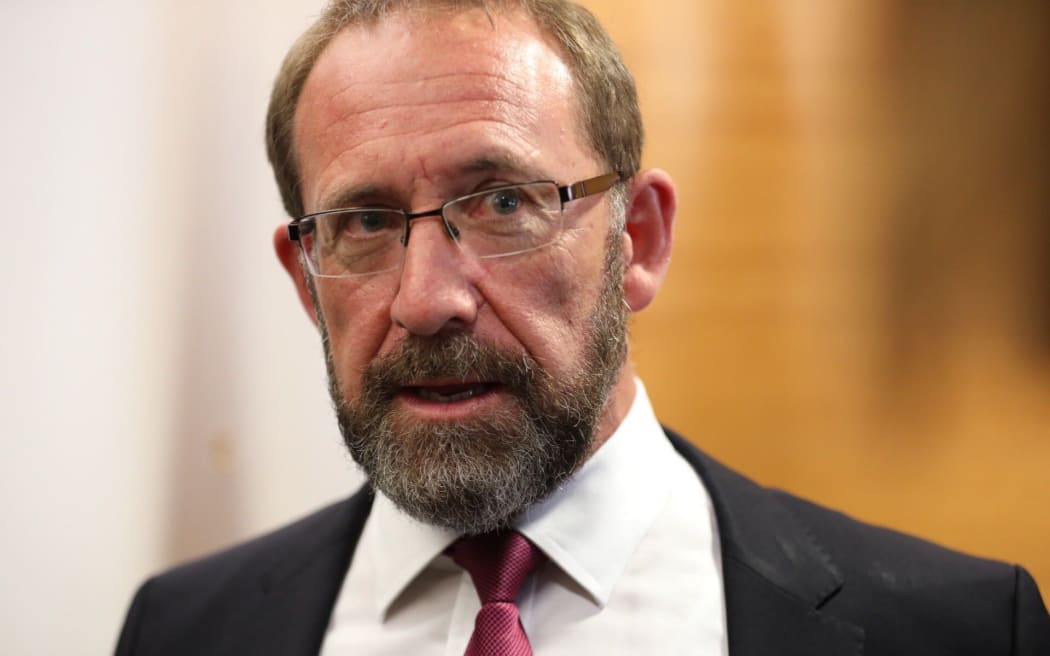Justice Minister Andrew Little has guaranteed that next year's cannabis referendum will be binding, but says he will explain "what binding actually means" when the next details are announced.

Andrew Little said the word "binding" could have several interpretations. Photo: RNZ / Ana Tovey
National yesterday published the four options for a referendum question contained in a leaked Cabinet paper which it says ministers will consider when they meet on Monday morning.
One of options would see a law already in place ahead of the election which would then be triggered by a yes vote.
The other three possibilities would not be technically "binding" as the government would not be obliged to act on them.
They would either put a general question to the public - "do you support legalising the personal use of recreational cannabis?" - or offer more detail in the form of a policy framework or draft legislation.
Mr Little told RNZ the government stood by its commitment to hold a binding referendum alongside the 2020 election, but he suggested the word "binding" could have several interpretations.
"We made the decision at the end of last year for a binding referendum. That decision remains," he said.
"[But] once Cabinet has made its decisions, and we're in a position to announce the next phase ... we'll be able to explain what 'binding' actually means."
Mr Little said the best time to offer that "clarity" would be after the final decision and announcement which he expected would be in "fairly short order".
National Party leader Simon Bridges said the leak showed a coalition in disarray and that the parties in it cannot agree.
He said it would not surprise him if they did not manage to make a decision on the Cabinet paper today.
"If you're going to do this and you mention the word binding you've got to have the greatest information and certainty about that. That would require a law in Parliament being passed and ventilated."
If a law was passed by parliament subject to a referendum National would be morally bound to do what the referendum said, he said.
Mr Bridges said he was personally opposed to the proposed cannabis reform because of concern over the effect on the mental health of users.
"I've been a Crown prosecutor I've seen the debilitating effect of cannabis throughout large communities, I do worry about that," he said, but added he was not "nailed in" and and would need to see any legislation.
National MP Paula Bennett said anything less than the "full legislative process" would let down the public.
"We would like to see legislation that has gone through the House ... through the scrutiny of a select committee, so experts can really be involved.
"I hear though there's a lot of dissension amongst the Greens, New Zealand First and Labour ... and I'm worried they'll go with a watered-down version because it's too difficult for them to agree."
Mrs Bennett said the other three options were not truly binding and could easily be changed by a future government.
"If the Greens are more influential, heaven help us, because I think we would see it far more liberalised."
Drug Foundation executive director Ross Bell said he too would prefer a law to be in place ahead of next year's vote.
"In terms of surety, having a draft bill that actually goes through that parliamentary process - which would allow members of the public to rock on up to a select committee - that would be the ideal situation."
At the very least, voters must be able to read the draft legislation, he said.
"Bottom line for us is having a level of detail so the public are confident on what they're voting for."
Sandra Murray, spokesperson for cannabis legalisation group Make It Legal, which is pushing to ensure the referendum is binding, said the government needs to realise that this is about the people.
"They need to put the people and what the people want above whatever their electioneering issues are."




